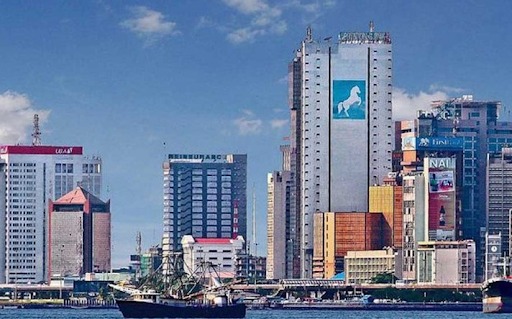In a bold move to enhance digital infrastructure and remain competitive in Nigeria’s rapidly evolving financial landscape, eight of the country’s top banks collectively increased their IT spending to ₦518.5 billion in 2024.
This represents a significant 109% increase from ₦248 billion in 2023, indicating a decisive shift towards digital-first banking strategies.
This surge in investment reflects not only a reaction to customer expectations for seamless digital banking but also a response to growing competition from agile fintech firms such as OPay, PalmPay, and Moniepoint.
Access Holdings Leads with Massive Investment
Access Holdings topped the list with a remarkable ₦193.5 billion spent on IT in 2024—up 148% from ₦78 billion in the previous year. While the bank didn’t undertake a full core banking overhaul like some of its peers, it implemented strategic upgrades during off-peak hours to avoid customer disruption. The bank’s aggressive digital investment supports its continental expansion goals and rapidly growing retail customer base.
GTCO, Zenith, and Fidelity Bank Ramp Up Tech Spending
GTCO followed with a ₦88 billion allocation to IT, representing a 48.4% increase from ₦59.3 billion in 2023. A significant portion of this expenditure was allocated to migrating from its previous core banking platform to Infosys’ Finacle, a globally recognized digital banking solution.
Zenith Bank nearly doubled its tech spend to ₦67.3 billion from ₦33.5 billion, aligning this growth with its shift from Finastra’s Phoenix system to Oracle’s Flexcube, a move intended to enhance digital capabilities and customer experience.
Fidelity Bank posted one of the most dramatic percentage increases, growing its IT budget by 239% to ₦56 billion, up from ₦16.5 billion in 2023. This move signals a more profound digital transformation for the tier-2 bank as it aims to strengthen its position in the competitive digital banking arena.
Other Banks Join the Tech Race
UBA increased its IT spending by 106.9% to ₦48 billion, with a focus on enhancing its mobile banking channels and digital services across Africa. Stanbic IBTC committed ₦33.4 billion to IT, a 73.1% rise year-on-year, in line with its focus on scalable and agile platforms for wealth and retail banking.
FCMB raised its IT spend to ₦26.8 billion (a 58.6% increase), while Wema Bank recorded the highest percentage growth—an astonishing 292.9%, increasing its spend from ₦1.4 billion to ₦5.5 billion.
First Bank Holdings, despite releasing its financial statements, did not disclose its IT expenditure figures, and Sterling Bank’s results were pending at the time of reporting.
Why the Tech Push?
Traditional banks are feeling the heat from tech-savvy fintech players that offer faster transactions and user-friendly experiences. Experts argue that IT investment is no longer optional but crucial for survival.
Clane CEO Dipo Alabede noted that while digital revenue is growing, so too are cyber threats. He emphasized that future investments must heavily focus on cybersecurity to combat rising risks like ransomware and data breaches.
Tayo Ogunlade, CTO of Onafriq, emphasized the importance of industry collaboration in bolstering Nigeria’s digital financial ecosystem.
As Nigerian banks deepen their digital transformation journeys, the emphasis is shifting from just infrastructure to cybersecurity and tech partnerships. With fintechs pushing the envelope and technologies like blockchain and AI reshaping the industry, sustained investment in innovation is the only way for traditional banks to stay relevant.



